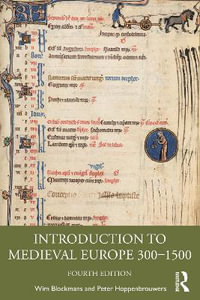
Fighters across frontiers
Transnational resistance in Europe, 193648
By: Robert Gildea (Editor), Ismee Tames (Editor)
Hardcover | 5 November 2020
At a Glance
Hardcover
$62.69
Ships in 7 to 10 business days
ISBN: 9781526151247
ISBN-10: 1526151243
Published: 5th November 2020
Format: Hardcover
Language: English
Number of Pages: 378
Audience: General Adult
Publisher: Manchester University Press
Country of Publication: GB
Dimensions (cm): 23.4 x 15.6 x 2.2
Weight (kg): 0.7
Shipping
| Standard Shipping | Express Shipping | |
|---|---|---|
| Metro postcodes: | $9.99 | $14.95 |
| Regional postcodes: | $9.99 | $14.95 |
| Rural postcodes: | $9.99 | $14.95 |
Orders over $79.00 qualify for free shipping.
How to return your order
At Booktopia, we offer hassle-free returns in accordance with our returns policy. If you wish to return an item, please get in touch with Booktopia Customer Care.
Additional postage charges may be applicable.
Defective items
If there is a problem with any of the items received for your order then the Booktopia Customer Care team is ready to assist you.
For more info please visit our Help Centre.
You Can Find This Book In
This product is categorised by
- Non-FictionHistoryRegional & National HistoryEuropean History
- Non-FictionHistoryGeneral & World History
- Non-FictionHistorySpecific Events & Topics in HistoryGeonocide & Ethnic CleansingThe Holocaust
- Non-FictionHistoryMilitary HistorySpanish Civil War
- Non-FictionHistoryMilitary HistorySecond World War
- Non-FictionWarfare & DefenceWar & Defence OperationsBattles & Campaigns
- Non-FictionHistoryEarliest Times to Present Day20th Century History from 1900 to 2000
























